
Rhineland-Palatinate is a western state of Germany. It covers 19,846 km2 (7,663 sq mi) and has about 4.05 million residents. It is the ninth largest and sixth most populous of the sixteen states. Mainz is the capital and largest city. Other cities are Ludwigshafen am Rhein, Koblenz, Trier, Kaiserslautern, Worms and Neuwied. It is bordered by North Rhine-Westphalia, Saarland, Baden-Württemberg and Hesse and by France, Luxembourg and Belgium.
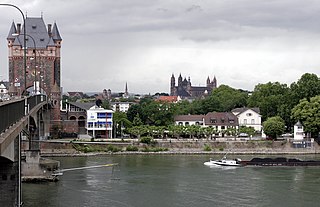
Worms is a city in Rhineland-Palatinate, Germany, situated on the Upper Rhine about 60 km (40 mi) south-southwest of Frankfurt am Main. It had about 84,646 inhabitants as of 2022.

Selzen is an Ortsgemeinde – a municipality belonging to a Verbandsgemeinde, a kind of collective municipality – in the Mainz-Bingen district in Rhineland-Palatinate, Germany.
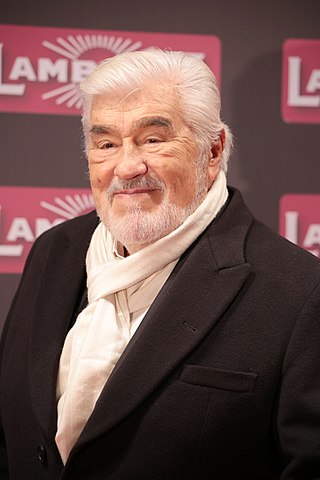
Mario Adorf is a German actor, considered to be one of the great veteran character actors of European cinema. Since 1954, he has played both leading and supporting roles in over 200 film and television productions, among them the 1979 Oscar-winning film The Tin Drum. He is also the author of several successful mostly autobiographical books.
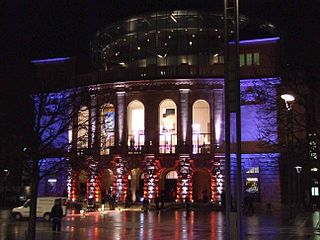
The Carl Zuckmayer Medal is a literary prize given by the state of Rhineland-Palatinate in memory of Carl Zuckmayer. The medal itself was fashioned by state artist Otto Kallenbach. The prize is also given with a 30 liter cask of Nackenheimer wine from the Weingut Gunderloch, a winery valued by Zuckmayer. The bestowal takes place on 18 January, the anniversary of Zuckmayer's death.

St Peter's Cathedral is a Roman Catholic church and former cathedral in Worms, southern Germany.

Ulrich Tukur is a German actor and musician. He is known for his roles in Michael Haneke's The White Ribbon, Steven Soderbergh's Solaris, the docudrama North Face based on the 1936 Eiger climbing disaster in Switzerland, and as Wilhelm Uhde in Martin Provost's biopic Séraphine.
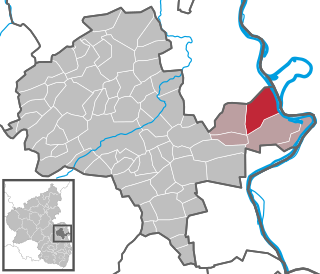
Gimbsheim is an Ortsgemeinde – a municipality belonging to a Verbandsgemeinde, a kind of collective municipality – in the Alzey-Worms district in Rhineland-Palatinate, Germany.
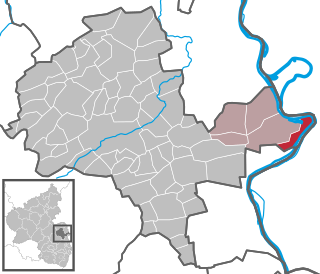
Hamm am Rhein is an Ortsgemeinde – a municipality belonging to a Verbandsgemeinde, a kind of collective municipality – in the Alzey-Worms district in Rhineland-Palatinate, Germany.
Volker David Kirchner was a German composer and violist. After studies of violin and composition at the Peter Cornelius Conservatory, the Hochschule für Musik Köln and the Hochschule für Musik Detmold, he worked for decades as a violist in the Radio-Sinfonie-Orchester Frankfurt. He was simultaneously the violist in the Kehr Trio founded by his violin teacher Günter Kehr, and a composer of incidental music at the Hessisches Staatstheater Wiesbaden.
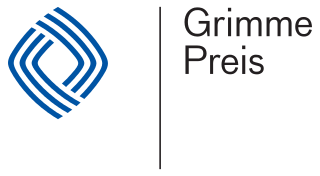
The Grimme-Preis is one of the most prestigious German television awards. It is named after the first general director of Nordwestdeutscher Rundfunk, Adolf Grimme. It has been referred to in Kino magazine as the "German TV Oscar".

The Eisbach, locally known as die Eis, is a 38-kilometre (24 mi) long river and left or western tributary of the Rhine in the northeastern Palatinate and southeastern Rhenish Hesse, in the German state of Rhineland-Palatinate.

The Deutsche Staatsphilharmonie Rheinland-Pfalz is a German orchestra based in the German state of Rhineland-Palatinate, in Ludwigshafen am Rhein.. as of the 2015/2016 season.

Dan Zerfaß is a German classical organist, the cantor at the Worms Cathedral and academic teacher.

Jan Metzler is a German politician who represents the Christian Democratic Union (CDU) in the Bundestag, the German federal parliament. Metzler was first elected in the 2013 election, gaining the constituency of Worms, which had previously been held by the Social Democratic Party of Germany (SPD) since its creation in 1949.
Michael Francis is a British conductor.
The Kunstpreis Rheinland-Pfalz is a prize awarded annually by the German state of Rheinland-Pfalz for outstanding achievement in the arts and alternates between the areas of visual arts, music, theatre, performing arts, film, and literature. The recipients must have a connection to the state either by birth, residence or their artistic work there and are selected by a jury. The prize was established in 1956 with the sculptor Emy Roeder as its first recipient. As of 2019, the main prize is an award of €10,000. There is also a Förderpreise of €7,500 for outstanding young artists.
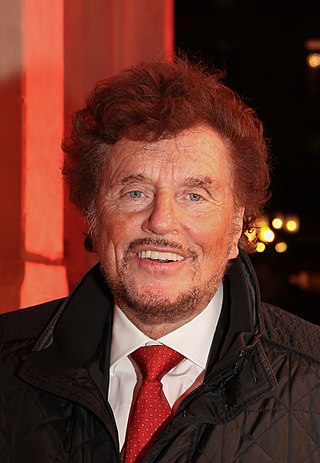
Dieter Karl Cäsar Wedel was a German director. Wedel directed numerous television productions since the late 1960s, among them very successful mini-series like The Great Bellheim, The Shadow Man, The King of St. Pauli and Die Affäre Semmeling. He is considered to be one of Germany's best-known television directors. He also served as the artistic director of the Nibelung Festival in Worms between 2003 and 2014.
The Fauré Quartet is a German piano quartet, named after Gabriel Fauré. Founded in 1995, they have performed internationally and recorded, including works written for them by composers such as Volker David Kirchner and Toshio Hosokawa.
Since 1993, the Else Lasker-Schüler Dramatist Prize has been awarded by the Pfalztheater Kaiserslautern on behalf of the Rhineland-Palatinate Foundation for Culture. The prize is named after expressionist poet Else Lasker-Schüler (1869–1945). It is endowed with €10,000, one of the most highly endowed playwright prizes in Germany. The award ceremony at the opening of the Theatertage Rheinland-Pfalz in the Pfalztheater or Staatstheater Mainz is carried out by the Prime Minister of Rhineland-Palatinate. Additionally the Stückepreis is awarded for promoting young talents.















